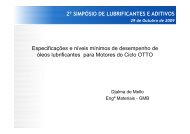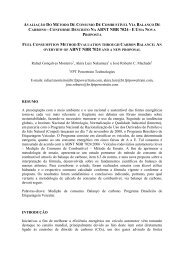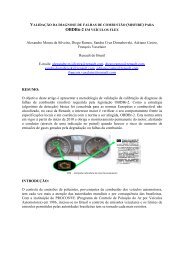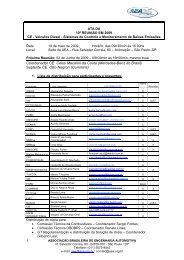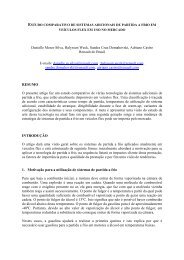Orlando Volpato, Delphi - AEA – Associação Brasileira de ...
Orlando Volpato, Delphi - AEA – Associação Brasileira de ...
Orlando Volpato, Delphi - AEA – Associação Brasileira de ...
You also want an ePaper? Increase the reach of your titles
YUMPU automatically turns print PDFs into web optimized ePapers that Google loves.
There are some studies that assess the emissions of green house gases for the<br />
complete fuel cycle [24]; from those studies the use of 1 liter of diesel fuel emits<br />
about 3.14 Kg of equivalent CO2 into the atmosphere. See table 3 below.<br />
The use of 1 liter of ethanol for the propulsion of engines, emits about 0.37 Kg of<br />
equivalent CO2, it is not zero because fossil fuels are still used in the process; like<br />
fertilizers, agro toxics, paints, diesel, etc.<br />
Consi<strong>de</strong>ring energy equivalence the substitution of ethanol for diesel avoids the<br />
emission of 2.52 Kg of equivalent CO2 per liter.<br />
Table 3: CO2 cycle for diesel vs. ethanol<br />
Using a substitution ratio of 60% to all diesel-burning engines avoids the emission of<br />
about 1.7 million tons of CO2 into atmosphere, per harvest season. See figure 9<br />
below.<br />
Fig. 9: Consi<strong>de</strong>rações: 50% Diesel substituído por etanol; 100% frota<br />
Potencial <strong>de</strong> evitação <strong>de</strong> CO2: 1.7 milhões <strong>de</strong> Toneladas<br />
A fringe benefit of this is that CDM (clean <strong>de</strong>velopment mo<strong>de</strong>ls) can be ma<strong>de</strong> and<br />
negotiated in the terms of the Kyoto protocol in or<strong>de</strong>r to finance the <strong>de</strong>velopment of<br />
technologies to further reduce the use of fossil fuels.<br />
Page 8 of 18


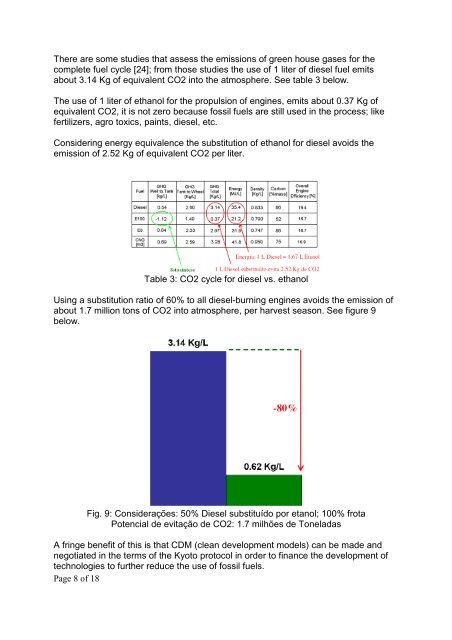

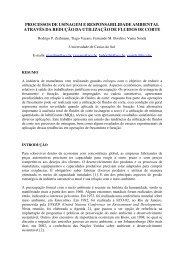
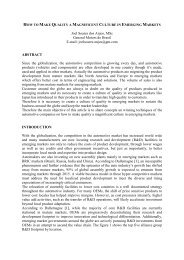

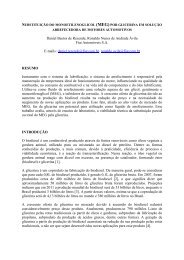
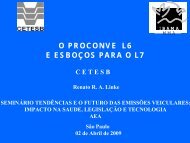

![Charles Correa Conconi, Mercedes-Benz [Modo de Compatibilidade]](https://img.yumpu.com/36264008/1/190x135/charles-correa-conconi-mercedes-benz-modo-de-compatibilidade.jpg?quality=85)
